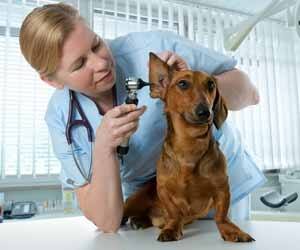Insights – One Animal Lover’s Career
Jenny Shively is a native of Seattle, Wash., who has been working with animals, in a variety of professional capacities for several years. In this interview with JobMonkey she describes how she began her career, the different jobs she has held, and the kinds of job opportunities others might find.
When did you first know that working with animals in some capacity was what you wanted to do?
I have always known that I wanted to work with animals. I grew up with a love of animals, my home was always filled with pets. However, I did not always know exactly what my options were or what specifically I wanted to do.

I learned more about these two things while I was in college and through a lot of Internet searching.
Describe your job and a little bit about your history working with animals…
My current job title is Birdkeeper I. What this means is that I am an animal caretaker at a Zoological park and I work primarily with birds. Although animal keepers work around animals this does not mean that we get a lot of animal contact time. A normal day of work consists of a morning meeting with the rest of my team (the other bird keepers and our supervisor). We use this time to catch up on any new developments and discuss any special plans for the day (catching up or moving birds, large projects like re-doing exhibits). After the morning meeting we all split up into our morning routines. The morning routine involves, letting animals out onto exhibits, feeding, and cleaning. The majority of our time is spent cleaning. We try to get all barns and exhibits cleaned and then we head off to lunch. After lunch we work on daily projects like re-perching areas or special cleaning projects. The afternoons are also reserved for training sessions with some birds. Of course, no two days are the same as with animals you never really know when something interesting is going to happen.
What are some of the traits someone has to have in order to enjoy a career path like yours / working with animals?
A person who wants to work directly with animals must of course have a love for animals. They must be friendly, work well with others, and most importantly they must be willing to get dirty. As a keeper or wildlife rehabilitator you are going to get covered in dirt, feces, and other equally unpleasant substances. You will have to come into contact with insects, raw meat, and fish. It is best if a person is not squeamish or allergic to many things. You must be in good physical shape, this means being able to run, lift a minimum of 50lbs, and stay on your feet for 8 hours. Basically, you need to be a physically fit, friendly person who loves animals and has a strong work ethic. It is also extremely helpful if you are able to interpret animal behaviors and understand their boundaries and limitations.
Does someone get into your line of work for the money…or for other reasons?
No one in their right mind would get into this career for the money.
We make next to nothing, and a lot of people need to have second jobs to support their style of living. However, you can survive on the job alone if you spend wisely and do not have a lot of other obligations. The nice part is that you do not have to have a college degree so not everyone needs to worry about paying back those loans. You do the job because you love animals and simply being around them all day makes you happy. It is a job for people who want to improve the lives of animals and educate the public about the amazing creatures that live all around us. People do the job for the emotional reward that comes from giving an animal a second chance at life or even something as simple as watching an animal playing with a new toy.
A lot of young people have this image of The Crocodile Hunter, Jeff Corwin…these crazy, way-out-there personalities you see on TV. Do you think what’s on TV is representative of your field at all?
What is on TV represents the extremes of what we do. Take “Dirty Jobs” and combine it with the Crocodile Hunter and you will have an idea of what we do if it were magnified times 20. The problem with a lot of the TV shows out there is that they give the impression that our field is wild and crazy, constantly exciting and dangerous. While the animal world does present a bit more risk than a desk job and is much dirtier than most people care for it still has its ups and downs just like anything else. There are slow days, extremely hectic days, and any number of days in between. One thing that I love is that no two days will be the same; when dealing with animals you learn that anything can happen. As for the TV personalities, you don’t have to be a quirky person to work with animals but it does help to have a sense of humor to get you through the day.


 Teach English in Asia
Teach English in Asia  Cruise Ship Jobs
Cruise Ship Jobs  Alaska Fishing Industry Jobs
Alaska Fishing Industry Jobs  Sharing Economy / Gig Economy
Sharing Economy / Gig Economy